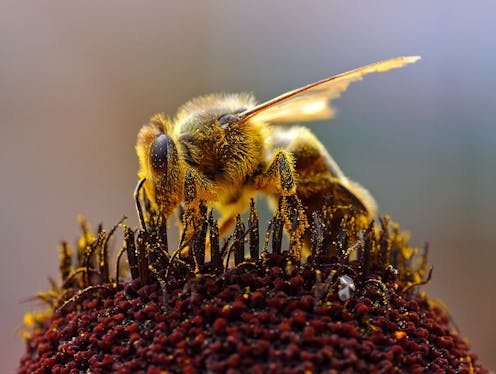What constitutes a mind? Lars Chittka challenges our perception of sentience with the smallest of creatures
- Written by Eliza Middleton, Laboratory Manager, School of Life and Environmental Sciences, University of Sydney

At the beginning of my research career around 15 years ago, any suggestion that a bee, or any invertebrate, had a mind of its own or that it could experience the world in an intricate and multifaceted way would be met with ridicule. As Lars Chittka points out in the opening chapters of The Mind of a Bee[1], the attribution of human emotions and experiences was seen as naivety and ignorance; anthropomorphism was a dirty word.
Pet owners eagerly ascribe emotions to their animals, but the simple brain of a bee surely could not experience the rich tapestry that is our existence. They are far too simplistic and robotic, right?
Review: The Mind of a Bee – Lars Chittka (Princeton University Press).

















